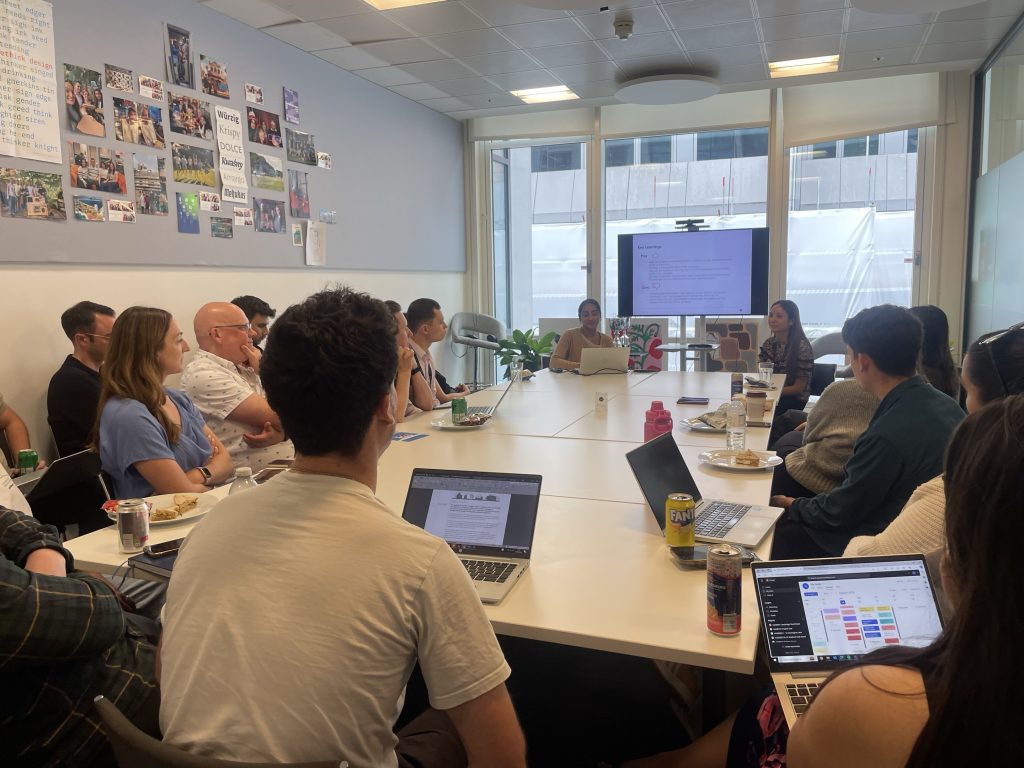
Written by Jessica Singh
In the realm of research and data, surveys have proven to be a critical tool in answering the “why,” “who,” “where” and “what” about particular topics. Even the simplest form of surveys can glean key information that can be acted upon.
Whether it’s understanding general preferences, the impacts of a service, or using surveys as a traditional consultation method, survey research provides the all-important bridge between unanswered questions and insightful data.
Here, we explore in more detail how surveys can be used more strategically to help shape proposals and ensure community support.
What makes a good survey?
Before we expand on surveys without a scheme, let’s break down what makes a good survey…
A good survey is more than just a collection of questions. It is a thoughtfully designed instrument that aims to capture a wide range of perspectives while being accessible and easy to complete. Clarity is key! Questions must be straightforward and devoid of jargon, ensuring that respondents understand what is being asked and that the purpose of the questions don’t get lost in translation when consulting on large schemes. That means setting clear objectives for what information we’re seeking to gather and being clear on the desired outcomes from the survey process.
Depending on the scope and size, open-ended questions are particularly valuable, as they allow respondents to express their thoughts and concerns that may not have surfaced during the early design stage. This allows for crucial, but potentially hidden, public sentiment to come through at an early stage, granting clients the opportunity to refine the proposals and shape the narrative to suit communities’ priority areas.
A combination of both close-ended and open-ended can yield meaningful results giving extra information to explore. Most importantly though, a good survey must be inclusive, catering to community diversity. This means considering language barriers, literacy levels, and access to digital tools if the survey is online. Accessibility ensures that all segments of the population can participate.
Surveys without proposals
In many cases, surveys can be used as an effective engagement tool during early consultations and in some cases, when there is no concrete scheme yet or a striking CGI.
At Kanda, we are constantly striving to improve transparency and inclusivity in local engagement. Recently, Kanda has been involved in a series of early community engagement and listening exercises for unknown schemes or developments not on the table. Using surveys has helped to produce authentic feedback without pre-empting the public’s views towards specific proposals and plans. From providing insight during a bidding process in Angel, to understanding sentiments from ethnic minority communities in regenerating a town centre, early surveying has shown that when communities are engaged with from the outset, they are more likely to feel that their input genuinely matters.
Unlocking voices of the seldom heard
It’s widely understood by the sector that the loudest voices in community consultations aren’t always the most representative. Often, the ‘seldom heard’ holds crucial insights that we may not be aware of or could be the circuit breaker for getting proposals over the line.
By collecting demographic data from early listening exercises and comparing it to Census statistics of an area or borough, we can establish who might be missing from the conversation. Identifying these gaps allows us to actively tailor engagement to those unrepresented voices, ensuring that when consultation begins in the earliest stage, every opinion, voice, and perspective is unlocked and included.

Jessica Singh and Britney Truong sharing a presentation of ‘Surveys without a Scheme’
Silent insights to life – Slough Central Town Centre
In the heart of Slough Town Centre, the redevelopment of the Queensmere and Observatory shopping centres into a vibrant new town centre presented an opportunity to engage a diverse population. Kanda was tasked with unlocking the insights of all residents, including the seldom heard. To achieve this, we employed a multifaceted communications strategy that combined traditional outreach with digital surveys.
With Slough being one of the most ethnically diverse boroughs in England, we used social media analytics to pinpoint demographics that had yet to engage with the redevelopment proposals. Our further efforts included targeted social media campaigns specifically aimed at the Polish community, a significant but often underrepresented group in local consultations in the borough. By incorporating online platforms with in-person engagement with community and cultural groups, we ensured that all segments of the community had the opportunity to review and provide feedback on the proposed plans.
As a result of this broadened engagement strategy and demographic targeting, we could build a comprehensive picture of community sentiment. The result was a highly successful consultation process, culminating in a unanimous consent for the redevelopment – proof that when every voice is heard, even the quietest insights can lead to a thriving and inclusive vision for the future.
From concept, to community, to development
Undertaking consultation at the earliest stage provides a wealth of data that can reveal potential challenges, allowing clients to either nip them in the bud early or build in mitigation measures before proposals enter the wider public arena.
Understanding community priorities can also shape the design stage and help craft developments that not only address current needs, but also anticipate future challenges, creating spaces that are truly reflective of the people who live there.
Kanda can use surveys to help you with your scheme
With urban development ever-evolving and communities continuing to diversify, surveys are an adaptive and versatile tool in the digital consultation toolkit. When designed considerately and conducted in an accessible manner, engagement with communities can foster trust between the developers, planners and the community to create developments that are more in tune with the needs of current and future residents, workers and visitors.
If your business or project could benefit from early community insights and our engagement expertise, get in touch with us to see how we can use carefully curated surveys to ensure the best chance of success: info@kandaconsulting.co.uk